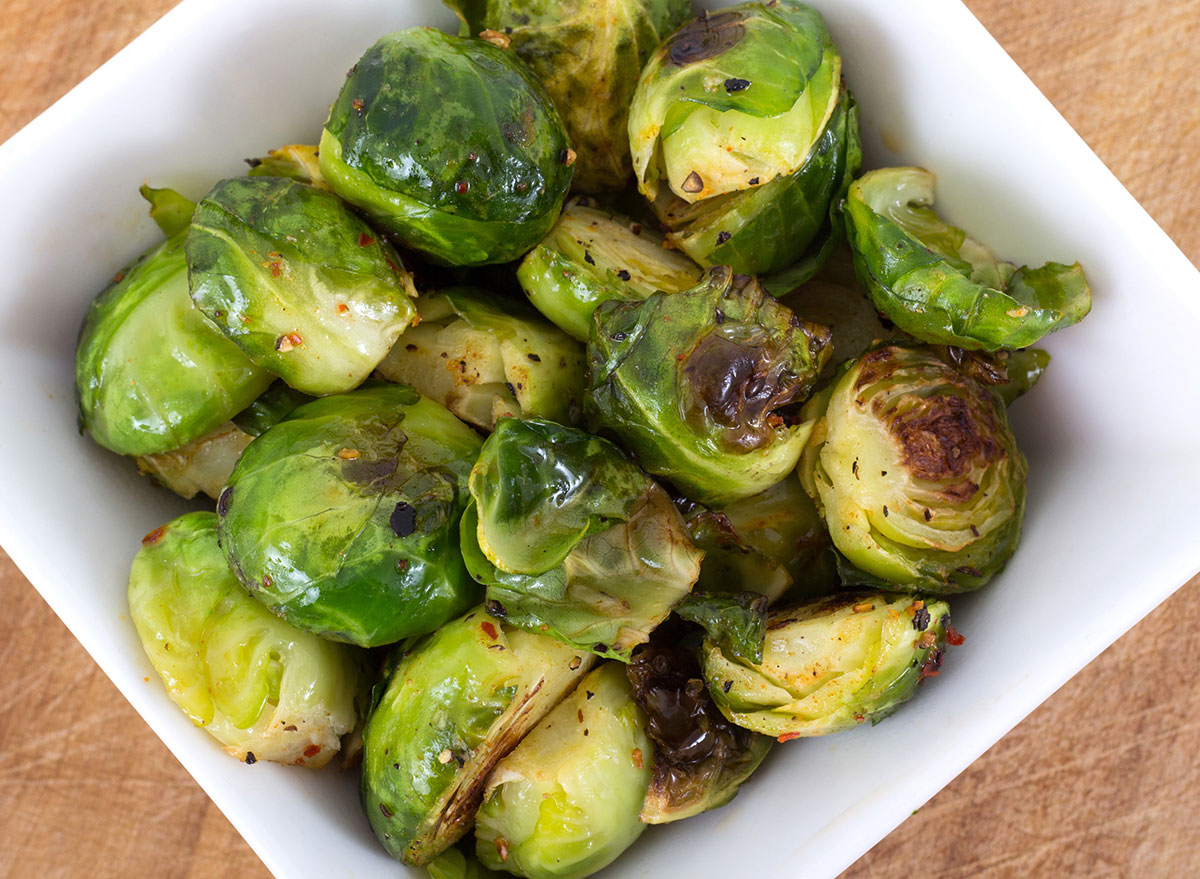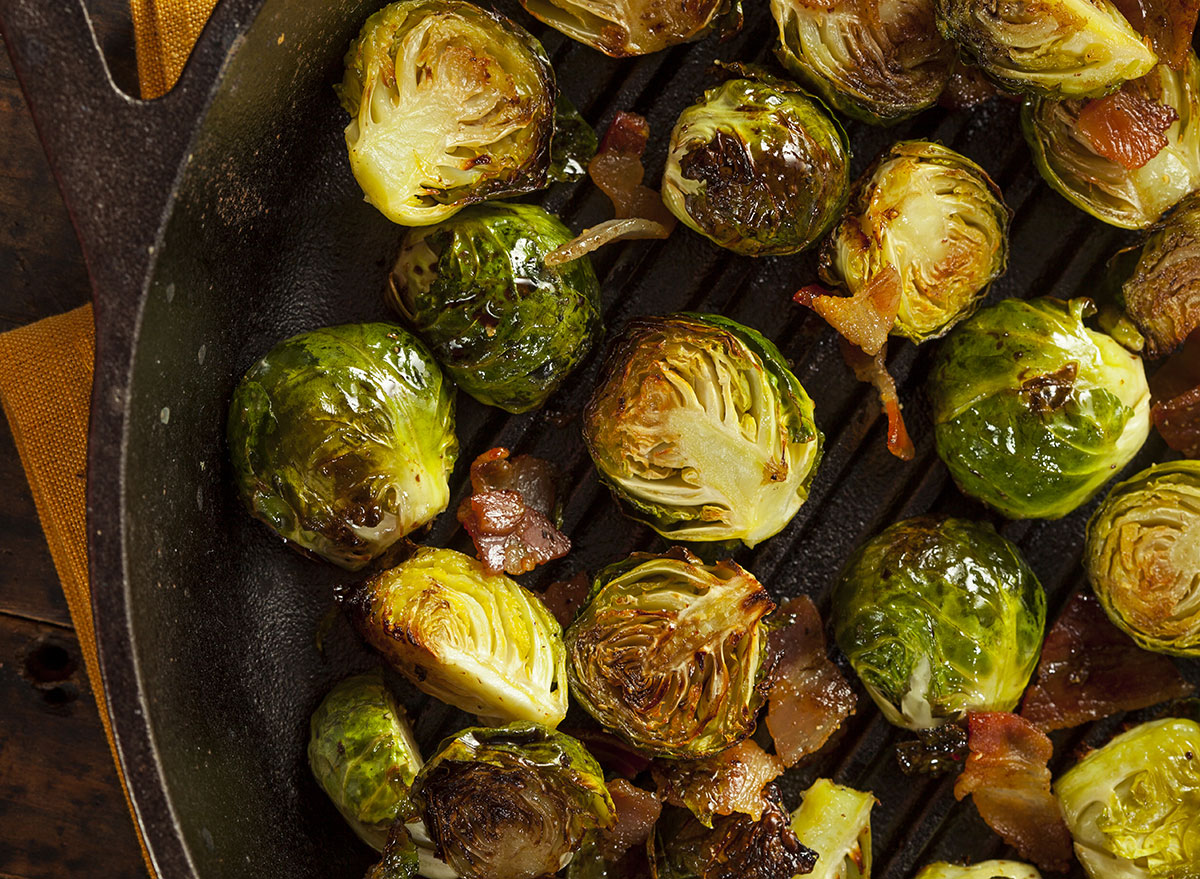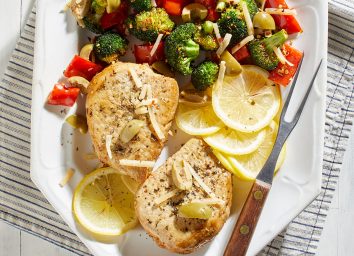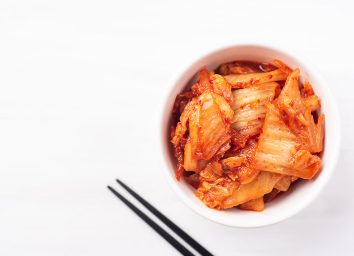One Major Side Effect of Eating Brussels Sprouts, Says Science

Brussels sprouts were never glamorized in the same way other vegetables like buttery corn on the cob or celery sticks with peanut butter were during childhood. This was partially due to the media's influence, as countless television shows and movies showed a kid sneaking the veggie to the family dog chilling underneath the dining table.
Roasted Brussels sprouts may not be palatable to all, but even those who enjoy the slightly bitter taste and crispy exterior may not tolerate the vegetable well—digestively speaking. It's no secret the little vegetable can cause some serious bloating and gas.
RELATED: The Most Common Reason You're Always Bloated, Say Dietitians
As a member of the cruciferous vegetable family—whose relatives include other hard-to-digest veggies such as cabbage, broccoli, and cauliflower—Brussels sprouts contain a type of carbohydrate known as raffinose. According to the Cleveland Clinic, small amounts of raffinose, along with other indigestible oligosaccharides like stachyose and verbascoce, reside in these types of vegetables. Since they cannot be digested in the stomach or small intestine, it's up to the large intestine to do the dirty work.

Bacteria in the large intestine are what break down the Brussels sprouts, which can cause gas. This is because hydrogen is produced along with carbon dioxide and in one-third of people, methane. So when you eat the vegetable and you feel the urge to pass gas, know that's an entirely natural process, and the unpleasant odor that often accompanies is sulfur.
However, how much gas the body produces after eating Brussels sprouts varies from person to person. People with irritable bowel syndrome (IBS), for example, may not even be able to eat the vegetable due to the intensity of their bloating and gas pains. Others may barely be affected. If you've never had Brussels sprouts before, try slowly introducing them into your diet, aka, don't eat a whole bowl.
For more, be sure to check out:








